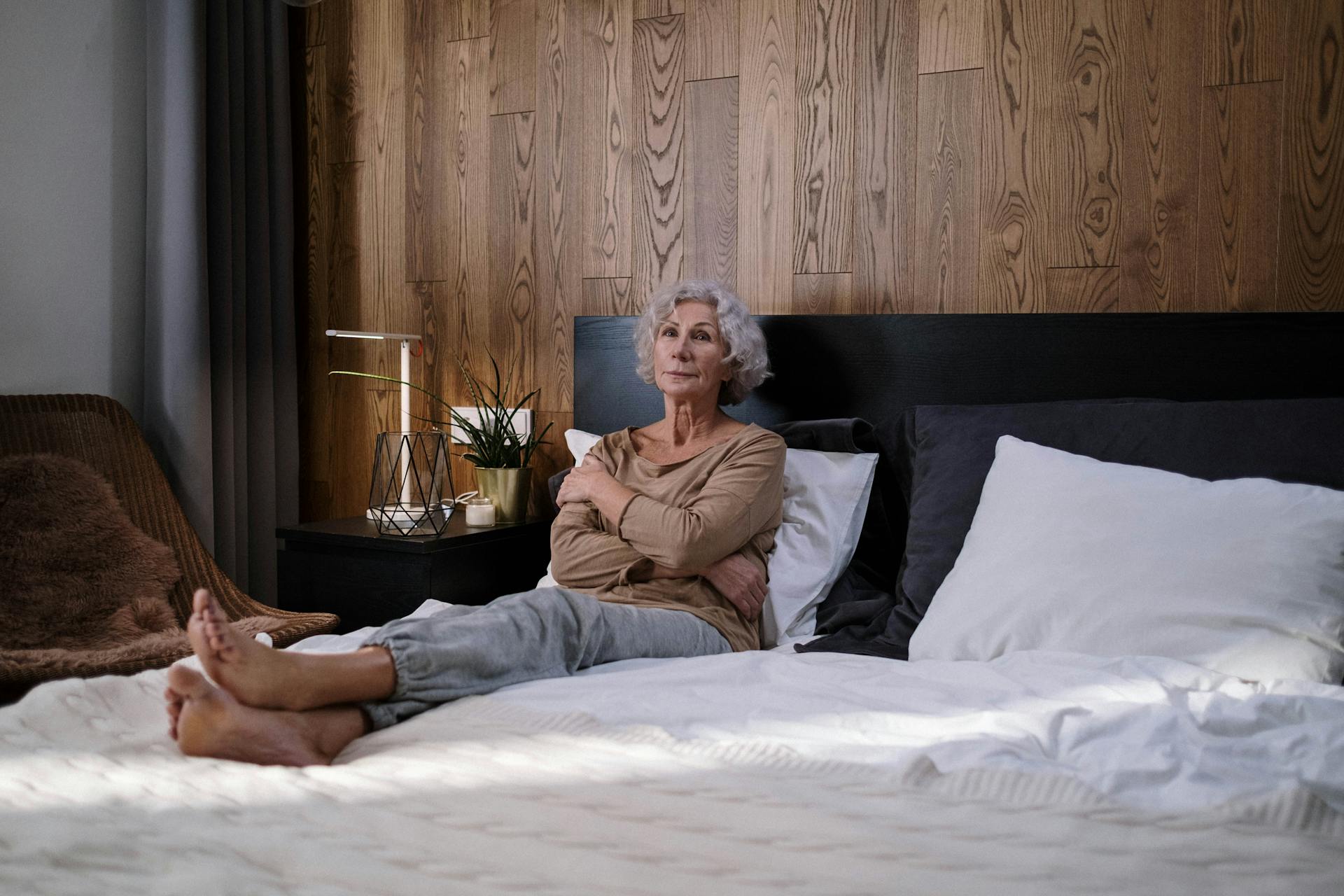Social connection plays a huge role in a person’s well-being, especially as they age. For seniors, getting regular attention, conversation, and emotional support is as important as their medical care. When those social connections slip away, either slowly or all at once, the results can be serious. They may start with just a bit of boredom or sleepiness but can slide into long-term sadness, confusion, or even physical decline.
In care facilities across Little Rock, social isolation can sometimes cross the line from being a quiet problem to being a form of elder neglect. When a person feels consistently alone, ignored, or separated from others, it affects more than just their mood. It can impact their health, dignity, and sense of safety. That’s why it’s so important for families, caregivers, and facility staff to understand the signs and step in early when something feels off.
Recognizing Social Isolation In Elderly Care
It’s not always easy to tell when a senior is feeling isolated. They might smile during visits or say everything’s fine over the phone. But behind the small talk, there may be hints that something’s changed. A decline in energy, a quieter tone, or a sudden lack of interest in once-loved hobbies can suggest that they’re pulling away from the world around them. It helps to know what those subtle red flags might look like so that families and care teams can step in when needed.
These are some signs that a senior may be socially isolated:
– They stop joining group meals or activities they used to enjoy
– They speak less or give short, delayed answers in conversation
– They seem tired during the day but have trouble falling asleep at night
– Their clothes and personal hygiene start to slip for no medical reason
– They make vague comments about being forgotten or left out
– They appear anxious or disconnected during visits
One family in Little Rock noticed something wasn’t right when their normally chatty grandmother grew quiet and lost interest in her daily morning coffee group. Over a few weeks, she stopped engaging with friends and even staff. At first, it seemed like she just needed rest. Later, it turned out she’d been moved to a different room away from her social circle. No one had checked in about how the change would affect her, and she felt invisible and left out.
Changes like that might seem minor, but over time, they build into a bigger pattern. Social isolation doesn’t always mean that someone’s being intentionally mistreated, but if left unaddressed, it can turn into a form of neglect. Spotting behavioral changes early gives families a better shot at stopping long-term harm before it takes root.
Addressing Social Isolation In Care Facilities
Once you recognize the signs of social isolation, addressing it quickly can make a big difference. Engagement doesn’t always require huge changes. Sometimes small, consistent steps are all it takes to help a senior feel seen and included again. Both the staff at the care facility and the family at home play key roles in keeping loved ones mentally and emotionally connected.
Some helpful ways to keep seniors engaged include:
1. Build a routine that includes social time – Encourage group activities that align with their interests or past hobbies. Things like music hours, crafting, or puzzle groups offer low-pressure ways to connect.
2. Promote one-on-one interactions – Staff should try to spend a few minutes of meaningful conversation with each resident every day. Personal stories or shared laughs help make residents feel heard and appreciated.
3. Make the space friendlier – Seating areas in common rooms should be welcoming, well-lit, and clean. Even having a space with games, books, or photo albums available encourages social activity.
4. Schedule regular family involvement – Whether it’s through in-person visits, cards, or video calls, familiar voices go a long way. Make a plan so your loved one has something to look forward to every week.
5. Work with the care team – Ask about upcoming activities or share feedback if your loved one seems left out. Being part of care planning gives families a chance to keep social well-being on the radar.
Social connection isn’t just about avoiding loneliness. It helps with memory, reduces anxiety, and gives the day structure. Staff members can’t always do it all, which is why family participation matters so much. The more consistent and thoughtful the engagement, the less likely it is for someone to experience the deep emotional strain that comes from feeling isolated inside a facility.
Legal Implications Of Social Isolation As Neglect
Social isolation might not look like neglect on the surface, especially when no one is causing physical harm. But when a senior is consistently left alone, ignored, or emotionally dismissed in a facility where they receive full-time care, it may raise bigger concerns. In some cases, that kind of ongoing isolation can cross the line into neglect, particularly if it’s affecting their emotional or physical health.
In Little Rock, long-term care homes have a responsibility to provide more than just meals and medication. Seniors also need social support and interaction as part of their overall care. If an elder shows signs of loneliness or emotional distress and no efforts are made to address it, their well-being may be at risk. That’s where it becomes important to understand what rights seniors have and what families can do when something doesn’t feel right.
There are protections in place for older adults living in care facilities. These protections cover their right to respect, safety, and personal attention. When those rights are ignored, either through careless staffing or poor practices, loved ones have the option to speak up and request an evaluation of the facility’s actions.
If a family suspects emotional neglect tied to social isolation, they may take the following steps:
– Start documenting noticeable changes in behavior or health
– Ask staff about daily routines and how social activities are being handled
– Raise concerns during meetings with administrators
– Get the senior evaluated by a doctor or mental health provider
– Report potential neglect to local adult protective services
– Speak with a nursing home neglect lawyer familiar with Arkansas standards
These steps don’t mean trouble is guaranteed, but being alert and ready to act keeps the facility accountable. Care homes are supposed to protect the full range of each resident’s needs. When there’s a pattern of neglecting someone’s emotional or social well-being, it could become a legal matter.
Making Sure Seniors Stay Connected and Cared For
Preventing isolation is a shared effort. It requires care teams, families, and the larger community to recognize that even small, quiet signs of distance can be serious. One resident retreating to their room all day may seem harmless, but if it happens often, it could mean they no longer feel part of their world. That kind of shift isn’t just sad. It can have lasting effects on their mental and physical health.
Social interaction helps seniors stay sharper, happier, and more grounded. It doesn’t always have to involve groups or events. Sometimes a short daily chat or a regular ride outside can bring a sense of normalcy back. When loved ones include calls, letters, pictures, or weekly check-ins, it reinforces the idea that they’re remembered and loved.
Families in Little Rock who remain active in a loved one’s care often find it easier to notice slight changes before they become big problems. They’re also more likely to catch when a facility is slipping in areas that matter. When a resident begins to pull away or report feeling ignored, even if in vague terms, it pays to listen closely and respond quickly.
If something feels wrong and basic questions go unanswered, it may be time to look deeper. Seniors trust others to help them feel safe and supported. That includes care facilities providing proper attention and companionship, and family members leaning in rather than backing away when things get quiet. Legal support can help reinforce these standards when facilities fall short, acting as both a safeguard and a way to push for better treatment. Taking action early can make all the difference in helping someone feel seen, heard, and respected again.
If you notice signs of social isolation affecting a loved one in a care facility, it’s important to act sooner rather than later. Support is available to help you understand your options and voice your concerns. Speak with a trusted nursing home neglect lawyer at The Law Office of Thomas G. Buchanan to explore ways to help protect your loved one’s well-being and dignity.

